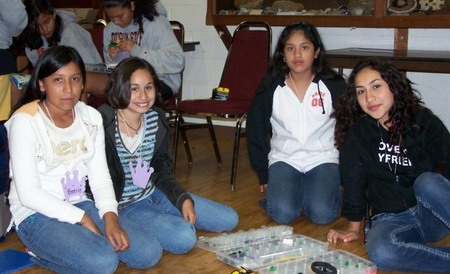Latino children—92 percent of whom are U.S. citizens—are the fastest-growing population in the country. As the country’s future adults, workers, taxpayers and voters, they are central figures in a changing demographic landscape, and the nation’s well-being depends upon their success. Yet Latino youngsters increasingly find themselves surrounded by a discourse and environment that is hostile and detrimental toward both Hispanics and immigrants, according to a report released by the National Council of La Raza.
“Speaking Out: Latino Youth on Discrimination in the United States” examines the ways in which Latino adolescents perceive and engage with formative social settings or institutions—school, work, law enforcement, and the juvenile justice system—on a daily basis. It reveals findings from a series of focus groups undertaken in 2009 with 60 Latino youth ages 15 to 17 in different regions of the country, including Los Angeles.

A significant majority—close to 83 percent—of Hispanic youth reported in a recent national survey that discrimination is a personal problem for them.
The report’s findings point to the following themes:
- Latino youth tend to have an optimistic outlook on the role of education and a strong desire to achieve successful careers. These attitudes are often associated with the hopes and expectations of their immigrant parents.
- Teenagers expressed a pervasive sense of being negatively stereotyped by teachers, employers, and public officers.
- One of the most consistent findings across the focus groups was the teenagers’ pervasive sense of being ‘racialized’—or construed as different, as “other”—on a regular basis, and in practically all realms of experience. Such stereotyping is manifested or reinforced through institutional practices and systemic discrimination.
- Young Latinos are struggling to shape a sense of belonging and forge future aspirations despite being surrounded by numerous barriers.
Research shows that principles such as a strong work ethic, family- and community-oriented values, respect for culture and nation and, above all, a strong desire to fulfill the American Dream, form the basis of many Latino youngsters’ capacity to excel and become productive adults and citizens.
Source: National Council of La Raza, “Speaking Out: Latino Youth on Discrimination in the United States”, October 21, 2010.